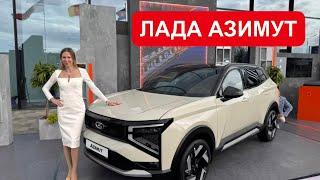Комментарии:

sheeeyit. Haha, very informative as always.
Ответить
Is this video "wifey approved"?
Ответить
Alright, here are my answers:
1. False
2. False
3. True
4. False
5. True
6. False
7. True
8. False

Best kw/kWh Video ever !
my example: my gasoline tank contains 120 PS and the car drives over 200 kilometer. WTF

Just explain with liquid, electricity is too virtual for some people until they put their fingers in the wall plug 😁
kWh = volume = liters
kW = flow = liters/h
Wh/km = consumption = liters/km

found this. Hope it helps. kW stands for kilowatt. A kilowatt is simply 1,000 watts, which is a measure of power. So, for example, the 10,000 watt electric shower in the top bullet point above could also be called a 10 kilowatt shower.
A kilowatt hour (kWh) is a measure of energy. What is energy?
Energy is a measure of how much fuel is contained within something, or used by something over a specific period of time.

Yes. Good examples of correct electrical units.
// Power is expressed in watts, kilowatts or larger.
// Energy is power (watts or kilowatts) for a duration of time.

For a given time period (an hour) think of it this way:
kW = the size of the water hose
kWh = the amount of water the bucket can hold
The bigger the hose, the more water will move through it in a given time period. (more kilowatts)
The bigger the bucket, the more water you can carry/use. (more kilowatt-hours)

My answers:
1.false
2.false
3.true
4.false
5.true
6.false
7.true
8.false

It needs to think about Watt as a Power (the same "entity" is measured by Horse Power units) and Wh is the energy that would be consumed by engine when it do the work. So if engine power is 100 kW, than it needs 100 kWh of energy to do it's job during one hour. If engine power is 200 kW, it needs 200 kWh of energy to perform during one hour. And if the battery capacity is only 100 kWh, than that engine would perform it's job only during half an hour.
Also it is possible to convert kWh to another unit- Joules. 1 Wh is 3600 Joules of energy because one Watt is one Joule per one Second and hour has 3600 seconds. Considering this, one kWh is 3.6 millions of Joules of energy. It is much enough to heat ten kilogram of water from zero to 85 Celsius degrees.

Bravo !
Ответить
Hm...
Ответить
To avoid all this confusion...
Power should be measured in Watts,
Energy or capacity should be measured in Joules!

Where is the explanation? Am I missing something?
Ответить
1 kW = 1000 W (kilo = 1000)
W (Watt) is a unit of Power
Wh (or kWh) is a unit of energy
Energy = Consumption of power (W) to do work over time (hours/minutes/seconds)
100W electric bulb consumes 100Wh of energy in one hour.
100W electric bulb consumes 1kWh of energy in 10 hours.
Watt = Amperes (current) x Voltage
100W = 10A x 10V
100W = 5A x 20V
... and so on
100W electric bulb in the US draws 0.833Amps | ~100W = 0.833A x 120V
Let's say on average a Tesla Model S uses about ~300Wh of energy per mile (300Wh/mile)
Theoretically, a 90kWh battery will offer 300miles of range at an average consumption rate of ~300Wh/mile:
90,000 / 300 = ~300 miles
Similarly, using the above calculation, a 75kWh battery will roughly offer ~250miles of range.
Hope this clarifies the concepts a bit too.

1. false
2. false
3. true
4. false
5. true
6. false
7. true
8. false

James Clerk Maxwell walks into a bar... Alessandro Volta and Georg Ohm are sitting at a table... James Watt says "There's a joke in here somewhere"
Ответить
I prefer Nissan's Miles/kWh than Tesla's Miles/Wh. Honestly Miles/kWh makes it easier and simpler than Miles/Wh because we can see real time consumption in kW on display (in Nissan LEAF). Nissan's display shows how much kW is used for the motor, accessories, climate control, and how much is regained in regen. So we can easily calculate that if that goes on for 1 hour, that is how many kWh.
Ответить
It helps to realize that Watt (Power) is Joule (Energy) per second:
1 W = 1 J/s = 3600 J/h = Energy per time = Power
1 Wh = 3600 J/h x h = 3600 J = Energy

It's a case of Bjorn & the tortoise.
Ответить
kW power unit, kWh energy unit
Ответить
kilo=1000 KW = measure of power(1000 watt) KW/H = power over time (1000 watt for the duration of 1 hour)
Ответить
I want that shirt
Ответить
What? What? Shiiiiiiit.
Ответить
Are the back seat different on the loaner? Are they the vegan seats?
Ответить
On a Chademo, I can charge with 50kWh per hour :-)
Ответить
Back to physics class:
Power P is expressed in Watts (W), which is the energy or mechanical work of 1 joule done in 1 second. So W=J/s
Now, multiplying watts (power) with time (seconds or hours), gives watt*second or watt*hour. W*h=J*h/s. Since an hour has 3600 seconds, then 1Wh=3600J=3.6kJ (kilo joules), 1kWh=3.6MJ (mega joules).
Anyways, bottom line, power is expressed in watts or multiples of watts, while energy is expressed in watts*hour or multiples. Multiplying the power of a charger with the time we get energy. Example: charger has 116kW and the car stays connected for 20 minutes. 20 minutes is 20/60=0.333 hours. So the energy stored in the battery is 116kW*0.333h=38.628KWh.

Thanks for making this video. There should be more videos explain power and energy.
Ответить
kWh = capacity
kW = flow
Would be good to say, that from 1kWh battery you can consume 1kW for 60minutes. In Tesla dimensions from 100kWh battery, you can consume 100kW (autobahn driving) for 1hour.

1. F
2. F
3. F
4. T
5. F
6. T
7. T
8. F
Love to know what my score was.

Thanks for the examples, uncle Bjorn!
Ответить
1. False
2. False
3. True
4. False
5. True
6. False
7. True
8. False

1. FALSE
2. FALSE
3. TRUE
4. FALSE
5. TRUE
6. FALSE
7. TRUE
8. FALSE

How is it with your car ?
Ответить
??How many gallons/liters of electricity will I need to fill my battery?? :)
Kinda ties in with your tip on another video about changing the energy left in the battery from miles/kilometers
to the % of juice left in the battery.
Like an ICE car fuel gauge does show miles remaining, but rather 1/2 a tank 1/4 of a tank and so on.
It's good tip.
As for the distinction between kWh and kW's....
I suspect that most folks only care about how fast their car (minutes 'til charged) is charging and
what percentage of the battery is left between stops(if my tank near empty?).
They leave the systems of measure up to the scientists and engineers. :)

3,5,7 are true? 😬
Ответить
In the 80s the electric cooking plates used to show watts: 350, 500, 700, 1000 watt. Sadly, newer ones just show 1, 2, 3, 4 and the makers probably think they did people a service by removing those "complicated" numbers. Same thing happened on other home appliances as well. Back then even children had some sense of what watts was. If you cooked something for an hour with a power of 1000 watts, then you of course have spent 1 kwh of energy. Very easy.
Ответить
lmao
Ответить
You are a terrible teacher sir
Ответить
I think that many people just leave the "h" out, because they're lazy and they think its something like the "p" in "kWp" from Solar Panels. There you can indeed leave the "p" out and it's still a physically correct unit.
Some people just don't realize that kW and kWh have completely different meanings, whereas kW an kWp are both units for power (kW is power in general, kWp is just specified for the peak).

92 thumbs up click from me! :-P
Ответить
Simplest explanation: Power (kW) is an instantaneous value. Energy (kWh) is power over time, hence the "hours", and is a measure of storage. Thus batteries store energy (kWh). A supercharger's instantaneous delivery is rated in kW.
Ответить
Simplier:
kW is power (How fast energy is delivered/used). It can be power of the motor, power of the charger, power of regen, power of a... Light bulb, or a heater :)
kWh is energy (how much work can be done or is needed for something). It can be capacity of the battery, energy usage over certain time, amount of energy generated in a time period, how much are you going to pay to the power company :)
In Tesla world kW give you speed, kWh give you distance.

Hey, does Auto Pilot works with no Internet????
Ответить
Ford sais on it's Website, that Ford Focus Electric consumes 15.4 Kw/100km . Sheeeeeeeeeeeeeeeeet!!!
Ответить
I would not normally get involved in these things and I do not like trying to insult people but,
Your figures and designations are very badly mixed up.
I can say these things as I have been working in this area for over 30 years.
1 P85 has a 85Kwh battery
2 was delivering 118kw (if charger delivered 118Kwh the battery would have overcharged)
3 50Kwh was delivered
4 wall box has a 22Kw capacity. (not 22Kwh)
I apologise in advance if this comment is taken in a bad light.

You did a great job explaining it. I can’t believe anyone would give dislikes to this video. I have a co worker at my job who calls kWh kw
Ответить



![Bryson Gray - LIKE EMINEM (EMINEM DISS TRACK) [MUSIC VIDEO] Bryson Gray - LIKE EMINEM (EMINEM DISS TRACK) [MUSIC VIDEO]](https://smotrel.cc/img/upload/SVZyQklVUFVWTEU.jpg)






















